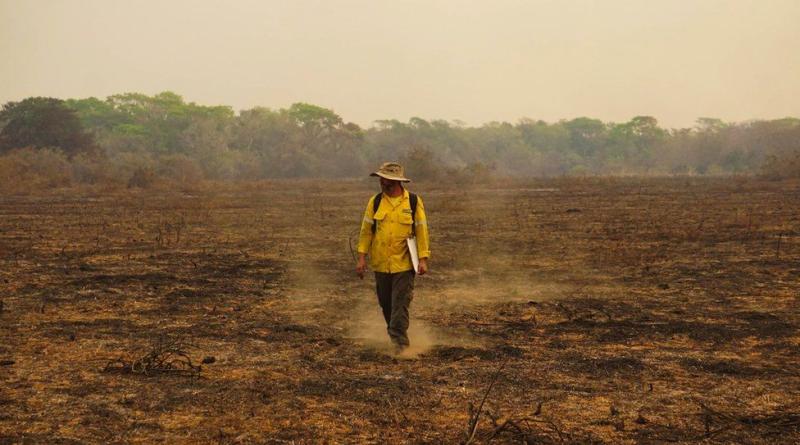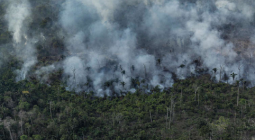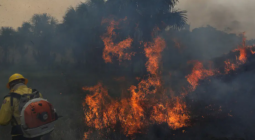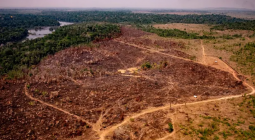Brazil wildfires killed an estimated 17 million animals

Amid the bleakness of 2020, scientists in Brazil concluded a particularly grim conservation study - attempting to count the animals killed by huge wildfires in the Pantanal wetlands.
They estimate that as many as 17 million vertebrates - including reptiles, birds and primates - died.
Wildfires burned between January and November, destroying 30% of the world's largest tropical wetland.
This estimate of the loss is published in the journal Scientific Reports.
Dr Mariana Napolitano Ferreira, head of science at WWF-Brazil explained that there were 22,000 separate fires recorded during that year.
This new research highlights, the researchers say, the importance of preventing such disasters in the future.
Body count
The Pantanal does burn naturally, but the 2020 wildfires were "apocalyptic", according to Dr Alex Lees, an ecologist from Manchester Metropolitan University who has worked extensively in Central Brazil, including in the Pantanal.
They were "very different" to those the region normally experiences and the typical cycle of burning and recovery, Dr Lees explained.
"These fires were unusual because of their scale and were clearly linked to the mega-drought that [the area] was experiencing at that time.
"The Pantanal can't keep burning to this huge extent year-after-year- biodiversity can't recover from that."
The study itself was based on a body-counting exercise.
Scientists managed to reach areas of the wetland within 48 hours of a fire. They walked along tracts at set intervals and examined every dead animal they found.
The team was able to identify the species of 300 animals they found. They then extrapolated from the area they examined to give an estimate of how many animals were killed in total.
Dr Walfrido Moraes Tomas, an ecologist from the research institute Embrapa Pantanal in Brasilia, led the study. He told the BBC that he and his team were "not surprised by the numbers", given the vast geographical scale of the disaster.
What did surprise him, he said, was how certain groups of species were more impacted than others.
"The extremely high number of snakes that were killed makes us wonder about the cascade effects," he explained. "Snakes are usually predators on small mammals, frogs. This impact may result in an unimaginable unbalance in the ecosystem."
The wetlands are located across Brazil, Paraguay and Bolivia and are one of the most biodiverse areas in the world. Thousands of species including jaguars, anteaters and migratory birds live in the 140,000-160,000 sq km area.
WWF Brazil's Dr Ferreira explained that field research was still ongoing. "The immediate impact was very shocking," she told BBC News. "But we also need to understand how the ecosystem recovers weeks, months and years after the fires."
A consequence of climate change
The researchers pointed out that more frequent wildfires are "among the most visible consequences of human‐induced climate change".
But however bleak the conclusion of this study may be, putting a robust number on the scale of this disaster, according to Dr Tomas, could bolster efforts to develop "proper fire management strategies and policies" in the region.
Other scientists have raised concerns about the accuracy of the estimate in this study. There is a large margin for error in extrapolating from the few hundred bodies the team counted to the total number of animals lost.
"They're extrapolating across a huge area of the world's largest wetland, so [the calculation] is a bit crude," explained Dr Lees.
"But it wouldn't surprise me if that's a ball park estimate - it could be more. There will be hundreds of millions of critters living there."
Dr Ferreira described the disaster in the Pantanal as "a message" to humanity.
"It shows us that nature is suffering, but we're also suffering - from lack of clean water and lack of food," she said. "We need to change the way that we interact with nature if we want future generations to live in this world."
PHOTO:CENAP-ICMBio
Image caption,
By Victoria Gill
Science correspondent, BBC News






